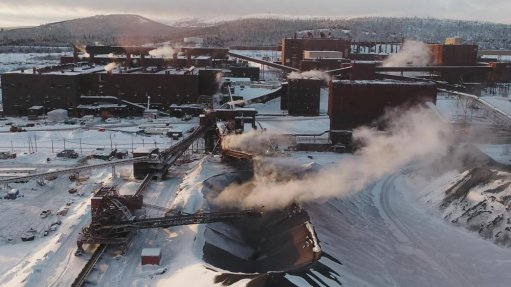
Rio Tinto's Iron Ore Company of Canada will supply high-grade iron-ore for the study.
Global miner Rio Tinto has teamed up with two partners to explore the production of a low-carbon steel feedstock, using green hydrogen generated from hydro-electricity in Canada.
The partnership, which also includes international engineering company Paul Wurth and European steelmaker SHS-Stahl-Holding-Saar, will study the viability of transforming iron-ore pellets into low-carbon hot briquetted iron.
Rio Tinto’s Iron Ore Company of Canada (IOC) will supply high-grade iron-ore and expertise in mining, processing and pelletising.
Paul Wurth brings expertise in plant building and process knowledge in the field of highly efficient hydrogen generation and Midrex direct reduction plants. SHS brings deep iron and steelmaking expertise.
The parties will conduct a feasibility study into the potential development of industrial scale low-carbon iron production. The study is scheduled for completion in late 2021, with an investment decision on a hydrogen-based direct reduction plant at industrial scale expected to follow thereafter.
Rio Tinto says its significant presence in the Canadian provinces of Quebec and Newfoundland and Labrador makes Canada a natural location for the project.
“We are absolutely committed to being part of the solution on climate change and to support our customers and other stakeholders in the steel value chain as the industry transitions to a low-carbon future,” comments IOC president and CEO Clayton Walker.
Rio Tinto has reduced its emissions footprint by more than 30% in the decade to 2020, and set an emissions target to reduce its carbon intensity by a further 30%, as well as its absolute emissions by a further 15% by 2030. The group has a long-term goal of achieving net-zero emission by 2050.
Through the Elysis joint venture with Alcoa, with investments from the government of Quebec and technology group Apple, Rio Tinto is involved in a project to produce aluminium that eliminates all direct greenhouse gas emissions from smelting.
Further, the miner has also entered into agreements with the world’s largest steel producer, China Baowu Steel Group, one of China’s most prestigious and influential universities, Tsinghua University, and Japan’s largest steel producer, Nippon Steel, to develop and implement new methods to reduce carbon emissions and improve environmental performance across the steel value chain.